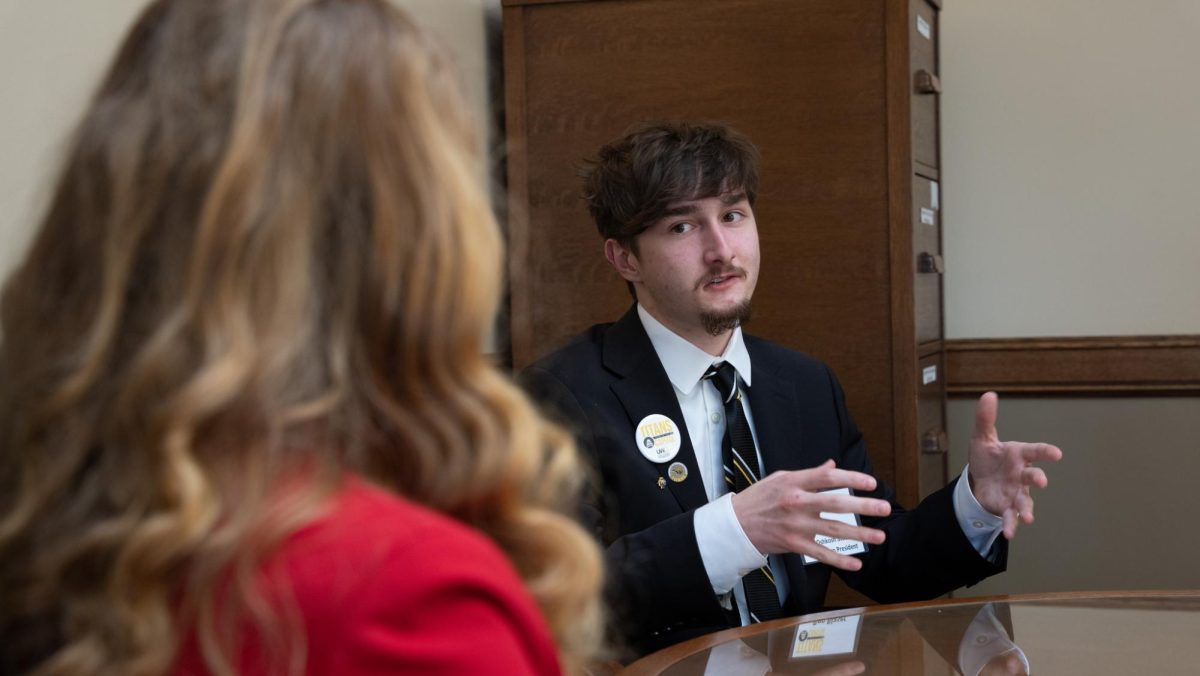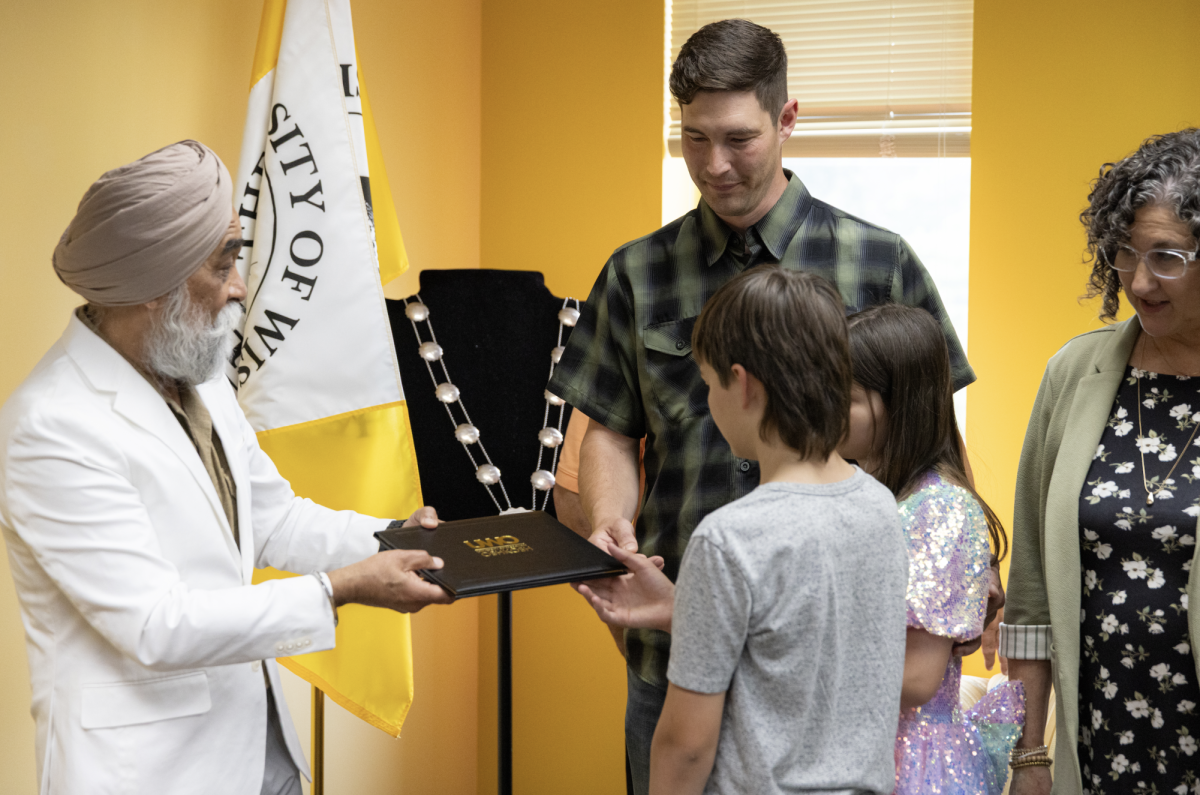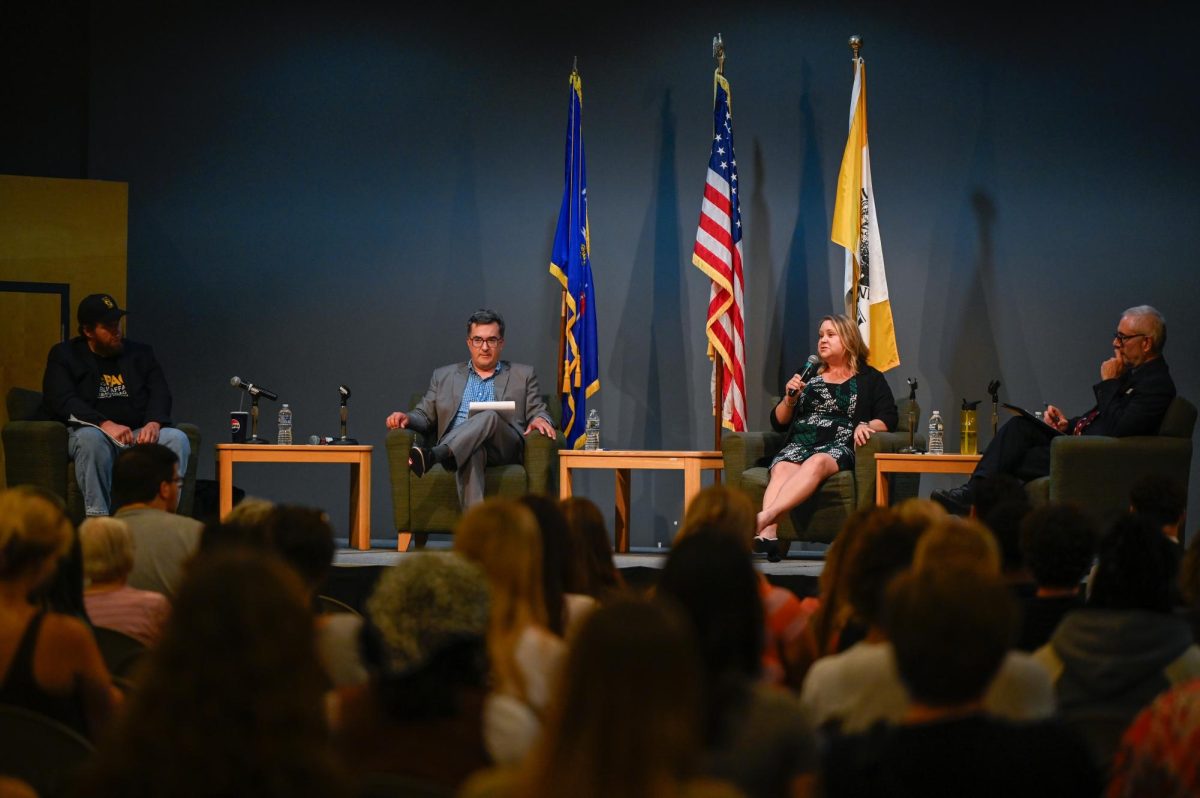The Oshkosh Student Association (OSA) Executive Board drafted a new constitution over the summer that renames the organization the Oshkosh Student Government (OSG), updates its executive positions, expands the Senate and replaces the assembly with town halls.
OSA President Ben Blaser and Vice President Jakob Rucinski said they wanted to clarify the role of student government and rebrand OSA to have government in its name to help students understand what the organization is about.
“Making our name clear that we’re the Oshkosh Student Government is going to get people who are interested in government to come and let people with concerns know who to reach out to,” Blaser said.
Blaser and Rucinski said recognized student organizations (RSOs) will be represented at town halls if the assembly is dissolved under the new OSG constitution.
“We want to emulate how other universities work,” Rucinski said. “Many people weren’t showing up to Assembly [meetings]; out of the 130 RSOs represented, at most we had 10 to 12 show up last semester.”
Rucinski and Blaser said assembly attendance rates have slipped considerably in the last decade and after failing to rebound last year, it was time for a change.
“We hope that more representatives will show up to town halls and we will hear more voices from them there in student government,” Rucinski said.
Blaser and Rucinski said they are committed to fostering an inclusive platform under the new OSG constitution and have tasked the director of organizational relations, the position replacing the assembly speaker, with moderating town hall discussions.
“We’ll have an expert give their opinion on both sides,” Blaser said. “Everyone’s welcome to speak. If a conversation gets overwhelmingly one-sided, the other side will be provided a chance to talk.”
Sometimes experts will be brought in to discuss issues at town halls, but other times, there will be meetings without an agenda to foster open dialogue.
“Some meetings will have set topics, so if there’s one of interest students can go to that, but we will also have open forum times where people can bring up what they want,” Blaser said.
With the assembly dissolved, RSOs and their representatives will lose the right to vote on policies in that legislature, but Rucinski reassures skeptics that students will still be able to vote in the Senate.
“Anyone represented before in the assembly can find themselves in the Senate and represent students there; we’re not taking voting power away from anyone who wants it,” Rucinski said.
The new OSG constitution expands the number of Senate seats to allow for more participation there with the assembly gone.
“We wanted to add more Senate seats to allow people who were previously in the assembly to join the Senate, so we created five more positions,” Rucinski said.
Rucinski and Blaser said the feedback of RSOs can create meaningful change at town halls and that the meetings will provide a more informal and inclusive space than the assembly to bring up issues and ideas.
“Town halls [as] an inclusive platform where people can bring up their issues definitely can be a place where new policy can arise over time as feedback and suggestions come in,” Rucinski said.
Students who may be uncomfortable addressing a town hall meeting can submit their feedback and recommend suggestions to the student government online.
“We have a place on the OSA website where students can click a button to report an issue, policy change, or other feedback,” Blaser said.
Titans now have the opportunity to vote for the OSG or the OSA constitution until noon Sept. 25 using an e-ballot sent out to all students’ UWO-affiliated emails.
“If you are at all skeptical of this new constitution, please come talk to us,” Rucinski said. “We extended the vote for students to let us know what their concerns are with this new constitution.”
The document that receives a majority of the vote will determine how student government is run, the way RSOs are represented and how they engage with it for years to come.









